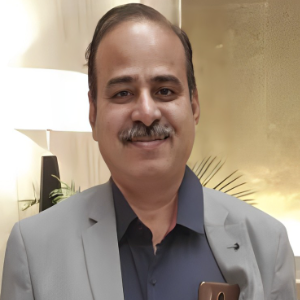Nanotechnology in cosmetics is a rapidly developing technology for improving the safety, effectiveness, and appearance of cosmetic products. This technology uses tiny particles, typically on the nanometer scale, to create materials that can interact with biological molecules, improve the delivery of active ingredients, and protect ingredients from environmental degradation. As nanotechnology continues to become more cost effective, many cosmetic companies are beginning to incorporate nanomaterials into their products. Some of the benefits that nanomaterials can provide to the cosmetics industry include improved texture and stability, increased delivery of active ingredients, and enhanced UV protection. Nanoparticles can be engineered to have skin-friendly properties such as low reactivity, improved adhesion, and reduced irritation. This is especially important for individuals with sensitive skin, as some natural ingredients in cosmetics can cause irritation when applied to the skin. The small size of nanomaterials also makes them ideal for incorporating active ingredients into cosmetics. By making the active ingredients smaller, higher concentrations can be used without negatively affecting the physical properties of the product. Finally, these nanoparticles can provide improved protection from UV radiation, positively impacting the safety of sunscreen products. In order to ensure the safety of nanotechnology in cosmetics, there is a need for further research and regulation. Companies should ensure that their products are tested and safe for human use. Consumers should be aware of the ingredients in their products and familiarize themselves with the potential risks of nanomaterials. With more research and education, nanotechnology can continue to be an exciting and beneficial tool for the cosmetics industry.

Ravi M Rathod
KMCRI, India
Dechelette Corinne
La Peau Autrement, France
Irina Sergeeva
Novosibirsk State University, Russian Federation
George Sulamanidze
Plastic Surgeon at Clinic of Plastic and Aesthetic Surgery and Cosmetology TOTALCharm, Georgia
Nino Tsamalaidze
Ltd Karabadini+, Georgia
Lina Petrossian
California University of Science and Medicine, United States
Surajbala Khuraijam
Manipur Health Services, India
Shrutimita Pokhariyal
Symbio, India
Yasser Mohammed Hassanain Elsayed
Egyptian Ministry of Health, Egypt



Title : Paraneoplastic Autoimmune Multiorgan Syndrome or PAMS: Paraneoplastic pemphigus revisited
Sergei A Grando, University of California Irvine, United States
Title : Modern non-invasive methods for in vivo assessment of skin
Georgios N Stamatas, SGS, France
Title : Personalized and precision dermatology through the view of biodesign-inspired translational & data-driven applications: Revolutionary skin treatments for every concern in clinical dermatology integrating skin care experts and consumers
Sergey Suchkov, N.D. Zelinskii Institute for Organic Chemistry of the Russian Academy of Sciences, Russian Federation
Title : The next generation of threads: Lifting, volumization, and biostimulation in one powerful triple action
George Sulamanidze, Plastic Surgeon at Clinic of Plastic and Aesthetic Surgery and Cosmetology TOTALCharm, Georgia
Title : Lymphoproliferative diseases in the practice of a dermatologist
Irina Sergeeva, Novosibirsk State University, Russian Federation
Title : Art, skin, and dermatology: Interdisciplinary perspectives
Dechelette Corinne, La Peau Autrement, France
Title : Comparative efficacy of omalizumab and dupilumab in children with Chronic Spontaneous Urticaria (CSU): A retrospective cohort analysis
Molynna Nguyen, University of Toledo, United States
Title : "Mirror mirror on the skin” — A low-cost community strategy to reduce melanoma disparities in Washington, D.C.
Kayla Sampson, Georgetown University School of Medicine, United States
Title : Vitiligo: Not just an aesthetic disorder
Mateja Starbek Zorko, University Medical centre Ljubljana, Slovenia
Title : Personalized and Precision Medicine as a unique avenue to have the healthcare model renewed to secure the national biosafety: Advanced skincare solutions in individualized cosmetology, reconstructive plastic surgery and the modern beauty
Sergey Suchkov, N.D. Zelinskii Institute for Organic Chemistry of the Russian Academy of Sciences, Russian Federation